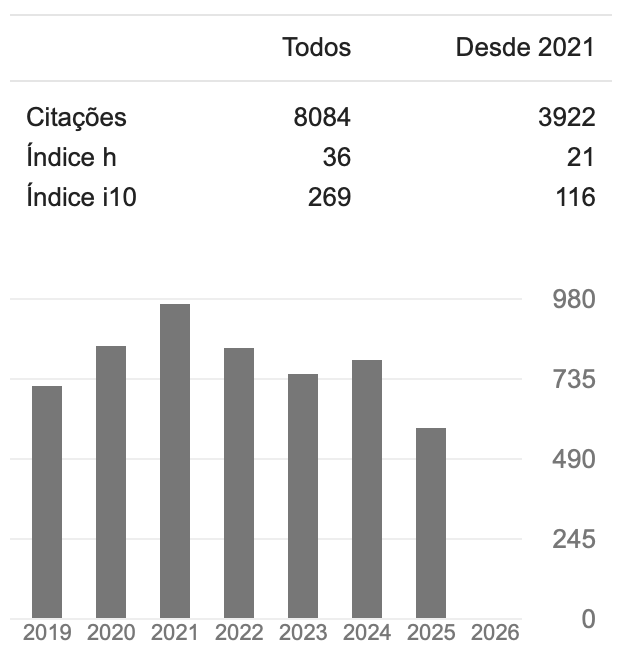The Social Capital of the Elderly at the Outpatient Clinic of the Unirg University Center in Gurupi to Brazil
Keywords:
Social Capital, Groups and Networks, Elderly PeopleAbstract
Social capital, people´s interaction capacity, is a good parameter to measure life quality in groups, elderly people included. Current analysis evaluates the social capital of elderly people at the outpatient clinic of the UNIRG University Centre in Gurupi TO Brazil. A descriptive and quantitative research was undertaken with data collection on 217 elderly people to whom a standard questionnaire was applied to assess the sample´s social capital. Most of the elderly people (65.90%) belonged to the 60 -70-year-old bracket; 61.80% were female; 95.10% belonged to social classes C and D; 31.30% were illiterate; 42.40% were hypertensive; 26.27% had spine conditions; 23.04% were diabetics. Evaluated social capital of the elderly showed that 50.23% participated in groups which undertook social activities and interaction; 86.20% thought that one should be suspicious of everybody; 58.50% answered that most probably they would involve themselves in community issues to solve or help resolve them; 92.60% stated that TV was their source of information on the government; 79.72% said they voted in the last political election; 45.16% confessed they were very happy people. Results show that the population under analysis had poor life quality levels and low social capital. No government-promoted programs or activities exist for the establishment of social networks for the increase in local social capital.Downloads
Download data is not yet available.
Downloads
Published
2013-02-08
How to Cite
Gontijo, Érica E. L., Gontijo, M., Lourenço, A. F. E., & Inocente, N. J. (2013). The Social Capital of the Elderly at the Outpatient Clinic of the Unirg University Center in Gurupi to Brazil. Saúde E Pesquisa, 6(1). Retrieved from https://periodicos.unicesumar.edu.br/index.php/saudpesq/article/view/2482
Issue
Section
Artigos Originais
License
A submissão de originais para a revista Saúde e Pesquisa implica na transferência da Carta Concessão de Direitos Autorais, pelos autores, dos direitos de publicação digital para a revista após serem informados do aceite de publicação.A Secretaria Editorial irá fornecer da um modelo de Carta de Concessão de Direitos Autorais, indicando o cumprimento integral de princípios éticos e legislação específica. Os direitos autorais dos artigos publicados nesta revista são de direito do autor, com direitos da revista sobre a primeira publicação. Os autores somente poderão utilizar os mesmos resultados em outras publicações, indicando claramente a revista Saúde e Pesquisa como o meio da publicação original. Em virtude de tratar-se de um periódico de acesso aberto, é permitido o uso gratuito dos artigos, principalmente em aplicações educacionais e científicas, desde que citada a fonte. A Saúde e Pesquisa adota a licença Creative Commons Attribution 4.0 International.
A revista se reserva o direito de efetuar, nos originais, alterações de ordem normativa, ortográfica e gramatical, com vistas a manter o padrão culto da língua e a credibilidade do veículo. Respeitará, no entanto, o estilo de escrever dos autores. Alterações, correções ou sugestões de ordem conceitual serão encaminhadas aos autores, quando necessário. Nesses casos, os artigos, depois de adequados, deverão ser submetidos a nova apreciação. As opiniões emitidas pelos autores dos artigos são de sua exclusiva responsabilidade.













